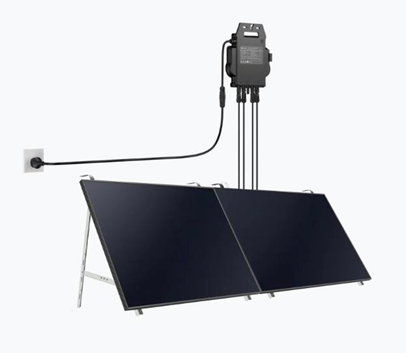Given the current situation concerning the greenhouse effect, ozone layer depletion, climate change, glacier erosion, and carbon footprint challenges, it is beyond dispute that all forms of renewable energy—such as solar and wind—have emerged as an urgent necessity. Governments worldwide are progressively encouraging proprietors of commercial and residential properties to consider renewable energy sources and transition to them to attain financial advantages if not environmental benefits. This is because, in recent times, enterprises globally have started to recognize the prospective advantages of transitioning to solar energy due to its manifold advantages. Organizations must meticulously assess many factors before transitioning to solar power to ensure their solar installation is customized to their needs. To learn more about this, continue reading.

Things to Consider Before Switching to Solar
Assess Solar Energy Sources
Before making any decisions regarding the adoption of solar energy, businesses must determine whether their location receives adequate solar radiation to render a solar installation feasible. By performing a solar resource assessment, you will obtain the precise data concerned. The use of solar electricity is on the rise among businesses. By carrying out a solar resource evaluation, one can get exact details about the sunshine that a particular area gets and the probable energy production of a solar project. The outcomes of this assessment will provide businesses with the knowledge necessary to identify the optimal solar system size and type to meet their energy needs, for instance, the balcony power plant 600W.

Evaluation of the Energy Requirements
Once businesses have ascertained the solar potential of their location, the subsequent course of action is to conduct an energy requirements analysis. With the aid of this research, organizations will be able to assess their current and prospective energy needs. Moreover, they can also identify potential energy management opportunities. Organizations can conduct an energy needs analysis in collaboration with the solar system to ascertain whether their solar system is suitable in size and type to fulfill their energy demands.
Sustainability and Scalability
Simplifying the transition to solar energy is an optimal strategy for enterprises to showcase their commitment to sustainability. When choosing a solar supplier, it is critical to identify companies demonstrating a similar commitment and offering solutions aligning with the organization’s overarching sustainability goals. Several prosperous solar companies manufacture environmentally sustainable products constructed from recycled materials. As an organization expands and grows, its energy demands may undergo alterations. Companies that supply solar solutions that can expand and change with your organization’s needs should be at the top of your list when you search for a provider. Scalable solutions will enable enterprises to augment their solar installation’s magnitude without requiring extensive system refurbishment.
Service to Customers, Maintenance, and Obedience to Regulatory Measures
Solar energy systems must be routinely serviced and maintained to deliver optimal performance. Consistent maintenance and repair can effectively mitigate operational interruptions and prolong the operational lifecycle of solar installations. Thus, it optimizes the return on investment for businesses. Businesses should look for maintenance and service contract providers when searching for a solar supplier to ensure that the solar system continues to operate without incident. Moreover, solar installations must adhere to state and municipal regulations before installation, which may include interconnection, zoning, and permit requirements. Failure to comply with these regulations may result in potential consequences such as system interruptions, financial penalties, or even the cessation of solar installation operations.
Conclusion
Regarding energy independence, cost savings, and sustainability, the transition to solar power can be extraordinarily beneficial for enterprises. Nevertheless, to transition, one must thoroughly consider various factors, including the sources of solar energy, the sustainability and scalability of the system, the expertise required, the quality of the products, the maintenance and servicing requirements, and the compliance with regulations. Organizations can guarantee a seamless and enduring shift to solar power by meticulously evaluating these factors and selecting a solar provider renowned for its expertise and positive standing.
